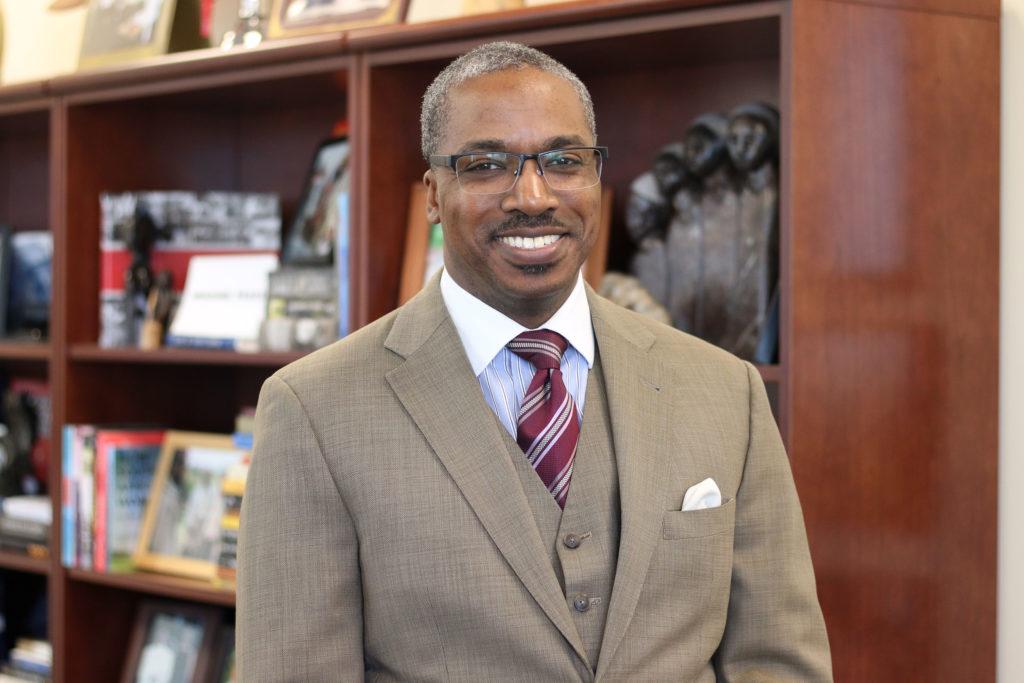The Elliott School of International Affairs will host its first-ever research conference later this month.
Officials said the research conference will focus on the topic of water, and faculty from across disciplines like public health and international affairs will convene to discuss research ideas at the event. Faculty said the conference will promote interdisciplinary research at the University while pushing academics to consider international solutions to water scarcity and access.
University spokesman Jason Shevrin said Graham Cornwell, the Elliott School’s assistant dean of research, will coordinate the event, which will be held on March 22 and called World Water Day. Shevrin said several dozen faculty and researchers from across the University are expected to attend.
“This conference is intended as a way to convene GW researchers and generate interdisciplinary discussions and research ideas,” Shevrin said in an email. “The Elliott School will market the conference to various departments across the University.”
He said the conference will be funded by a “modest” budget but declined to specify the cost of the conference.
Dean Reuben Brigety said the school created the conference in direct response to University President Thomas LeBlanc’s call to bolster research and science efforts across GW.
“President LeBlanc has asked us, all of us across the campus, to think harder about how the University is greater than the sum of its parts and to reach across traditional disciplinary boundaries,” Brigety said.
Brigety said he hopes faculty will come to the conference with ideas and collaborate with other professors who are working on research relating to water. He said he hopes the research conference is a “catalytic” event to spawn additional research ideas, projects and potential partnerships between faculty members.
“The idea is that they will come and share their existing research and then while everybody is sitting in the room say, ‘Oh, I didn’t realize you were working on that, and well, this approach using GIS to map water resources in the upper Baltic actually has implications of conflict, right?’” he said.
Faculty said the conference will encourage professors to conduct more interdisciplinary research, which will help bolster GW’s research profile and develop solutions to problems related to water use and access.
Peter LaPuma, an associate professor of occupational and environmental health, said the conference will encourage professors to conduct more interdisciplinary research in science, technology, engineering and math disciplines, which will boost GW’s standing as a research institution and help solve real-world problems.
“Certainly, we want to educate our students in STEM-related areas and enhance our research portfolio, and if students do that, you start to create collaborations,” he said. “You start to bring people together with different kinds of issues related to water, and then you start to engage the research community to start to think about ways you can abate some of those problems.”
Luke Wilson, a professional lecturer in the law school, said the conference is a “good start” to bolster GW’s reputation as a prominent research institution because giving faculty the opportunity to share their research with one another can encourage researchers to work together in the future.
“That’s how you find and achieve those goals and come up with those world-class solutions and achieve world-class results,” he said. “It just means that the results are going to be that much more profound and that much more impactful.”
He added the theme of the conference can also bring together researchers who otherwise never would have worked on the same projects.
“There really is nothing that unifies humanity and unifies all the different disciplines at the University except for water,” he said.
Christopher Leinberger, a research professor of urban real estate, said the University needs to ensure that the conference actually promotes future research endeavors and makes an impact both on the GW and international communities.
“Conferences are nice, but if they’re not connected with implementation, you have to question, ‘Why are we having this conference?’” he said. “You might feel good about it at the end of the conference, but if nothing is coming out of it afterwards, this falls under the category, ‘If a tree falls in the forest, and nobody’s there to hear it, did the tree fall?’”
Madeleine Deisen, Leah Potter and Hayden Smith contributed reporting.





